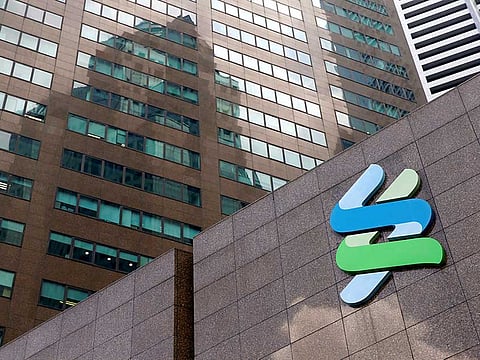Standard Chartered executive steps down, adds to compliance turnover
The bank’s head of financial-crime compliance, John Cusack, said he is exiting the position at the end of 2018

London: Standard Chartered Plc’s global head of financial-crime compliance is stepping down after four years, the latest rejig at the emerging-markets lender, which last week announced it remains under US sanctions oversight.
John Cusack said he is exiting the position at the end of 2018, according to a LinkedIn message in response to a query from Bloomberg News on Monday. A spokesperson for Standard Chartered declined to comment.
The move adds to upheaval at the bank’s compliance unit, which oversees conduct of the lender’s 86,000 employees in countries from Singapore to Angola. Standard Chartered said earlier on Monday that Tracey McDermott, head of corporate affairs and brand and marketing, will also oversee compliance. She replaces Neil Barry, who left after an investigation concluded that his language and behaviour toward colleagues was inappropriate, according to an internal memo in June.
Standard Chartered has been under the scrutiny of the Justice Department since 2012, when it entered into a deferred prosecution agreement to resolve US allegations the bank facilitated business with blacklisted Iranian parties. The US rebooted the deal in 2014, saying the bank may have failed to disclose violations that had continued after the period covered in the original agreement.
The London-based lender’s 2012 DPA, which was set to expire on July 28, has been extended to December 31, according to a statement on Friday.
The move “has nothing to do with the extension, which was expiring at the end of July,” Cusack said. It has “no connection whatsoever.”
Under a DPA, a company typically must submit to oversight by an independent monitor for a number of years. Charges will be dropped if the firm complies with the agreement, but failure to comply would allow prosecutors to reopen the case.
The bank was fined $667 million (Dh3.21 billion) for violating the US sanctions. In 2014, Standard Chartered agreed to pay $300 million for failing to flag suspicious transactions, as required under the initial deal.
Standard Chartered has continued to battle with compliance and conduct issues since then. Chief Executive Officer Bill Winters, who was hired three years ago in the wake of the Iran fines, imposed a tighter code of conduct in 2016, saying senior staff had flouted ethics rules and had seen themselves as “above the law.”
In April, he sent another memo to employees, calling out misconduct at the emerging-markets lender.



